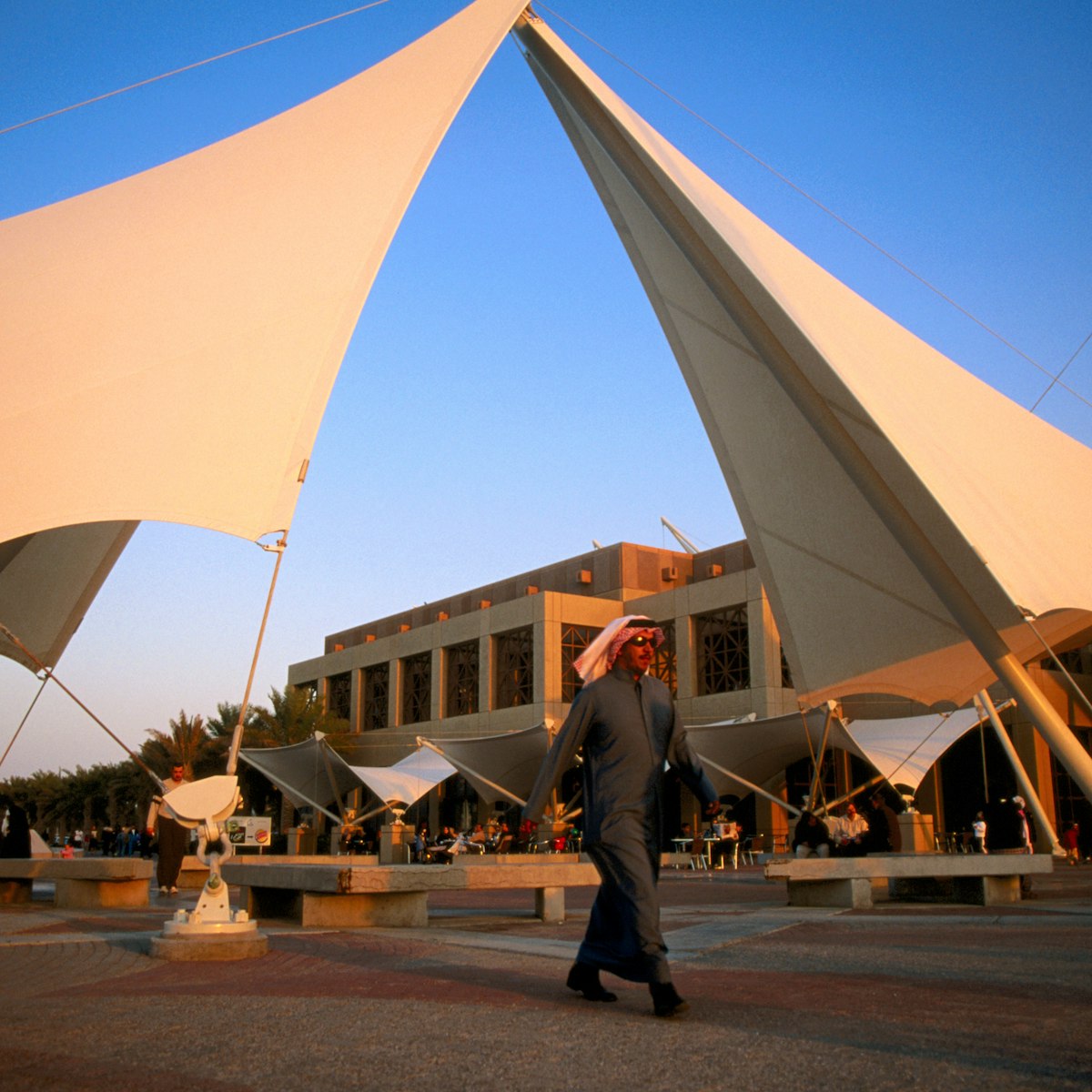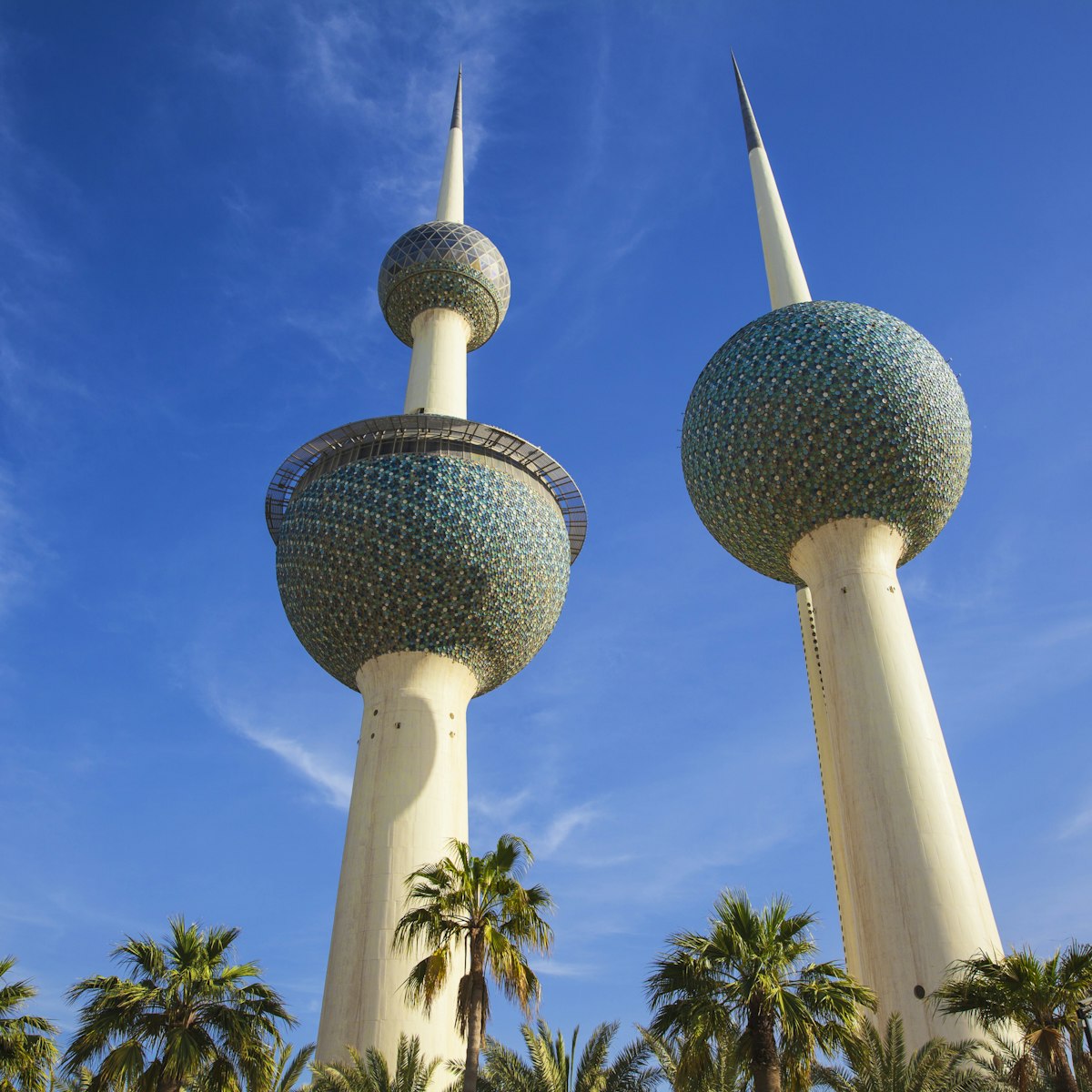Housed in the basement of a large villa, this exquisite ethnographic museum should not be missed. There are inlaid musical instruments suspended in glass cabinets, Omani silver and Saudi gold jewellery, headdresses from the humble prayer cap to the Mongol helmet, costumes worn by princesses and goat herders, necklaces for living goddesses in Nepal, Jaipur enamel and Bahraini pearls. Despite all these superbly presented pieces, it's the Arabic manuscripts in the Calligraphy Museum that give the collection its international importance.
The museum was assembled as a private collection of Islamic art by Kuwait’s first minister of antiquities and his British wife. A pair of ornate doors from Cairo and Carl Haag’s 19th-century painting of Lady Jane Digby El Mesreb of Palmyra, who lived in tents in the winter and a Damascus villa in the summer, mark the entrance to an Aladdin’s cave of beautiful items.
Many stories arose from the brutal Iraqi invasion and occupation of Kuwait in 1990, many of them too painful or tragic to tell. But there is one good-news story that is remarkable in its simplicity. While the National Museum was being looted by Iraqi soldiers, the custodians of the Tareq Rajab Museum bricked up the doorway at the bottom of the entry steps and littered the steps with rubbish. The Iraqis questioned why the stairs led to nowhere but mercifully didn’t pursue the issue and the collection survived intact.
The museum is in Jabriya, near the intersection of the Fifth Ring Motorway and the Abdulaziz Bin Abdulrahman Al Saud Expressway (also known as the Fahaheel Expressway). There is no sign on the building, but it is easily identified by its entrance – a carved wooden doorway flanked by two smaller doors on each side. All four of the door panels are worked in gilt metal.
Allow an hour to visit, although anyone with a passion for textiles will inevitably want to stay longer. Bus 102 stops at the nearby Hadi Hospital. It's a 10-minute walk from here, south along the Fahaheel Expressway and turn right just after the Iranian School. Walk for a further 50m and the museum is on the left.





